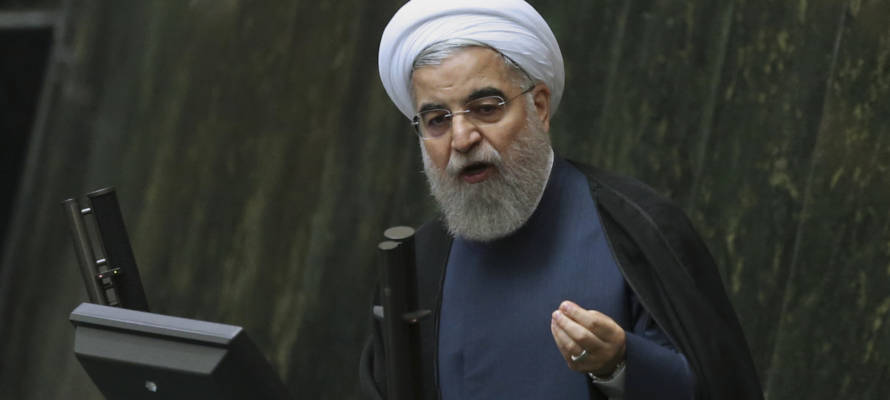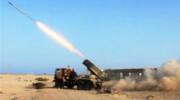Iranian hardliners have “toned down” their bellicose rhetoric against the US following Republican Donald Trump’s victory over Democratic opponent Hillary Clinton in last week’s presidential election, according to a Middle East Media Research Institute (MEMRI) analysis published on Thursday.
By: Barney Breen-Portnoy/The Algemeiner
“Instead there are vague threats that are less specific than in the past about an appropriate Iranian response to any move the US might make against Iran,” MEMRI researchers A. Savyon, E. Kharrazi and U. Kafash wrote.
The analysis further noted that “unlike Clinton, Trump is seen by the Iranian leadership as not committed to democratic values or human rights because of his past remarks on women and minorities, and as a dominant ruler with whom Iran can find common ground. Iran has actually chosen to cooperate with Republican administrations that demonstrated strength and determination…For instance, when the US military operated in Iraq and Afghanistan during the George W. Bush administration, Iran cooperated with US forces and even stopped enriching uranium of its own accord, fearing an American attack. Also, during the Reagan administration, it was the Iranian regime that initiated dialogue with the US on the Iran-Contra affair.”
Among Iran’s “pragmatic camp,” as the analysis called it, there is “fear that the JCPOA [Joint Comprehensive Plan of Action] will now be cancelled.”
“[R]epresentatives of the pragmatic camp were quick to stress that the US must adhere to its commitments and implement the agreement with Iran, due to their apprehensions that President Trump would follow through on his campaign promise to reverse it,” it said. “Others expressed cautious optimism that Trump as president would be different than Trump as candidate, as evinced by his victory speech, which they said was more measured and moderate than his campaign rhetoric.”
Trump, the analysis emphasized, “need not take measures to cancel the agreement. He can take another tack to do this, by strictly implementing all sections of the agreement as it already exists, upholding Congress’ initial sanctions on Iran for its human rights violations and support for terrorism, and passing additional sanctions, for example on Iran’s ballistic missile program which the Obama administration did not include in the JCPOA…Such moves could restructure the relationship between Iran and the US administration, making it into one based on cooperation and mutual understanding — in contrast to the Iranian regime’s contempt for and ridicule of the Obama administration. This scenario would be like the Reagan presidential win, after which Iran immediately released the Americans it had been holding hostage for over a year during the Carter administration.”
In an interview with The Algemeiner last week, an expert on Iran said Tehran regime officials were worried the Islamic Republic could be the “big loser” from Trump’s election win.
“I think the reactions we’ve seen from Iran — the urging of Trump to maintain the nuclear deal, the warning that he can’t roll it back — suggest that they’re worried about the fact that existing US policy, which is very favorable to Iran, could change pretty substantially over the course of the next several months,” Ilan Berman — of the Washington, DC-based conservative think tank the American Foreign Policy Council — said.
Looking ahead at what Trump’s Iran policy might be, Berman noted, “You need to figure out what’s going to change and what’s not going to change. What’s not going to change, unfortunately, is the nuclear deal itself, because even though Trump has talked a lot about renegotiating or rolling back the deal, the reality is that the lion’s share of the benefits from the deal have already been conferred to Iran. Also, the deal is multilateral, so even if the US walks away, it doesn’t mean that our partners in the P5+1 will do so as well.”
“So if the deal is going to be with us in some fashion for some time,” Berman continued, “we have to be thinking seriously about what comes next. And what comes next, hopefully, is a strategy that pushes back against a rising Iran regionally. This will require military resources, political will and, frankly, a more forward stance on responding to Iranian proxies like Hezbollah.”
Do You Love Israel? Make a Donation - Show Your Support!
Donate to vital charities that help protect Israeli citizens and inspire millions around the world to support Israel too!
Now more than ever, Israel needs your help to fight and win the war -- including on the battlefield of public opinion.
Antisemitism, anti-Israel bias and boycotts are out of control. Israel's enemies are inciting terror and violence against innocent Israelis and Jews around the world. Help us fight back!























